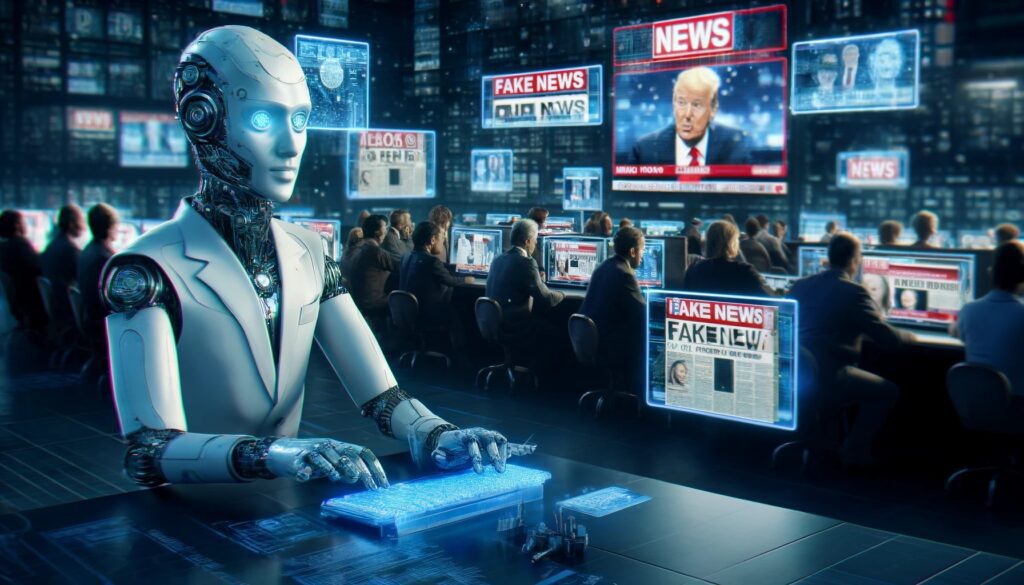The rise of AI-generated misinformation poses a significant risk to democratic integrity
- Convincing Misinformation: AI models like GPT-3 generate fake news stories that many people find believable.
- Democratized Disinformation: The ease of creating AI-generated fake news enables widespread dissemination of false information.
- Impact on Politics: AI-generated disinformation influences political preferences and voter attitudes.

The advent of advanced artificial intelligence (AI) technologies has revolutionized many aspects of life, but it also brings concerning implications for the integrity of democratic processes. Researchers have demonstrated that AI models can generate highly believable fake news, raising alarms about the potential impact on elections.
A team from the University of Cambridge’s Social Decision-Making Laboratory explored the capabilities of neural networks in generating misinformation. They trained GPT-2, a predecessor to the now-famous ChatGPT, on various conspiracy theories. The result was thousands of misleading but plausible-sounding news stories, such as “Certain Vaccines Are Loaded With Dangerous Chemicals and Toxins” and “Government Officials Have Manipulated Stock Prices to Hide Scandals.” These AI-generated headlines were then tested on the public, revealing that a significant portion of people found these fabricated stories believable. Specifically, 41 percent of Americans thought the vaccine headline was true, and 46 percent believed the stock market manipulation story.
The effectiveness of AI-generated misinformation was further underscored by a study published in the journal Science. This study found that GPT-3 could produce disinformation that was more compelling than human-generated content, with people often unable to distinguish between the two.
As we approach the 2024 elections, the threat of AI-generated misinformation looms large. The use of AI in spreading false information is not just a theoretical concern but a present reality. For instance, in May 2023, a fake story about a bombing at the Pentagon, accompanied by an AI-generated image, caused public panic and a dip in the stock market. Similarly, Republican presidential candidate Ron DeSantis used fake images of Donald Trump hugging Anthony Fauci in his campaign, mixing real and AI-generated visuals to blur the lines between fact and fiction.
The democratization of disinformation has been facilitated by AI, making it easy for anyone with access to a chatbot to create and disseminate convincing fake news. This represents a significant shift from the past, where disinformation campaigns required human troll factories and substantial resources. Now, AI can generate hundreds of variants of misleading messages quickly and cheaply, allowing for precise micro-targeting of specific groups based on their digital behaviors.
Researchers have also investigated the impact of AI-generated disinformation on political preferences. A study by the University of Amsterdam created a deepfake video of a politician making offensive remarks to his religious voter base. The findings showed that viewers of the deepfake developed more negative attitudes toward the politician compared to those who did not see the video.
The implications of AI-generated disinformation are profound. As deepfakes, voice cloning, and identity manipulation become more prevalent, the integrity of democratic elections is at risk. Governments may need to impose strict regulations or even outright bans on the use of AI in political campaigns to protect the democratic process. Without such measures, the very foundation of democracy could be undermined by the unchecked spread of AI-generated fake news.
